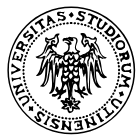Introduction
The University of Udine is a comprehensive national university in northeastern Italy. Its main campus is located in Udine. It enjoys a certain reputation in Italy and even internationally for its high-quality teaching and scientific research.
Overview
Student size: In the 2020/2021 academic year, the school has 14,986 registered students, including 10,394 undergraduates, 2,427 postgraduates, and 203 doctoral students.
Number of faculty and staff: The university currently has 730 teachers and 531 technical management professionals.
History and establishment time
The University of Udine was founded in 1978. Its establishment originated from the reconstruction plan after the devastating earthquake in Friuli in 1976. At that time, the public and local institutions mobilized to collect at least 50,000 signatures to establish a university in Friuli, and the final signatures reached 12.5 10,000 people, and with this opportunity, the University of Udine was born, aiming to provide an independent center for scientific and cultural research training for the people of Friuli, and also an important place for Friuli language teaching and research.
School Strength
Teaching Staff: 730 teachers and 531 Technical management professionals, a large and professional faculty, can provide students with professional teaching and guidance.
Scientific research level: The school actively participates in many domestic and international scientific research projects, and has achieved remarkable scientific research results, especially in some subject areas, which are in a leading position in Italy and even Europe, and have made positive contributions to promoting the development of disciplines and social progress.
International cooperation: It has carried out extensive student and faculty exchange programs with many universities in countries and regions such as the European Union, Australia, and Canada, and has close cooperation with many universities in Eastern Europe and other non-EU countries, continuously improving the internationalization level of the school.
Institutional nature
Public university.
Educational philosophy
Always adhere to the school-running philosophy of teaching students in accordance with their aptitude, and is committed to promoting the development of higher education, scientific research, technology conversion and internationalization, and promoting the integration of various projects, experiences and innovative ideas in the region.
Key laboratories and disciplines
Key laboratories: The school has many advanced laboratories and research centers, such as the Economics and Law Library, the University Hospital Library, etc., but has not specified specific key laboratories.
Advantageous disciplines : Agronomy, engineering, medicine, veterinary medicine and linguistics are among the best in Italy, among which linguistics ranks first among all public universities in Italy, and the University of Udine is one of the first universities in Italy to offer majors such as multimedia and medicine.
Faculty
The University of Udine has ten colleges and 28 departments, including the College of Agriculture, the College of Economics, the College of Education, the College of Engineering, the College of Modern Languages, the College of Humanities, the College of Law, the College of Science, the College of Medicine, and the College of Veterinary Medicine.
Ranking
2025 Times Higher Education World University Rankings: Ranked 601-800.
2019 US.news World University Rankings: 480.
Expenses
As a public university, tuition fees are relatively low, about 1,000-2,000 euros per year, but the specific fees may vary depending on the major and course. In addition, the school also provides preferential policies such as scholarships and grants for outstanding students to reduce the financial burden of students.
Campus Environment
Geographic location: The main campus is located in Udine, a city in northeastern Italy. The city is located between Trieste and Venice, less than 20 kilometers from the Slovenian border. It is an important city in the Friuli region and the area where it is located is also a developed light industrial area in Italy. There are many well-known companies and factories around it, providing students with abundant internship and employment opportunities.
Teaching facilities: The school is distributed in six campuses, including Udine Campus (main), Cividale Campus, Gemona Campus, Gorizia Campus, Pordenone Campus and Mestre Campus in Venice. It has well-equipped computer rooms, research rooms and libraries with rich collections of books, providing good conditions for students' study and research.
Living facilities: The living facilities around the campus are complete, including student dormitories, canteens, supermarkets, etc., to meet the daily needs of students. In addition, the school also provides a series of services for international students to help students better adapt to studying and living in Italy.
-
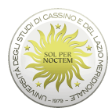
University of Cassino and Southern Lazio
-

University of Campania Luigi Vanvitelli
-
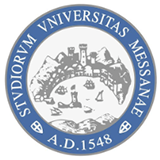
University of Messina
-
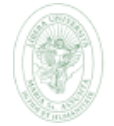
Libera Universita degli Studi Maria SS. Assunta di Roma (LUMSA)
-

University of Bari Aldo Moro
-
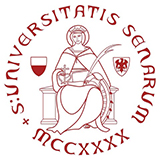
University of Siena
-
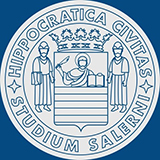
University of Salerno
-
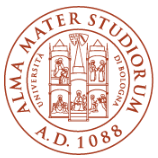
University of Bologna
-
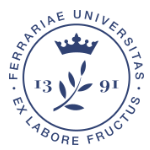
University of Ferrara
-
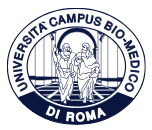
Campus Bio-Medico University of Rome
-

Mesoamerican University
-

Istmo University
-

Mariano Galvez University of Guatemala
-

Regional University of Guatemala
-

Galileo University
-

Francisco Marroquín University
-

Rafael Landívar University
-

University of the Valley of Guatemala
-

University of San Carlos of Guatemala
-

Technological Institute of Tlaxcala Plateau
-

Golfo University
-

Technological University of South Sonora
-

Technological University of Huejotzingo
-

Tizimín Institute of Technology
-

Chilpancingo Institute of Technology

